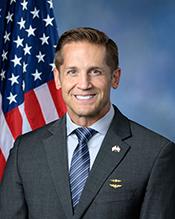0
E-Verify Data Privacy and Wrongful Unemployment Act of 2023
12/15/2023, 4:00 PM
Summary of Bill HR 4430
In terms of data privacy, the bill seeks to strengthen protections for the personal information of individuals who are subject to E-Verify checks. It includes provisions that require employers to securely store and dispose of this information, as well as restrictions on how it can be used and shared. Additionally, the bill establishes penalties for employers who misuse or improperly handle this data.
On the issue of wrongful unemployment, the bill aims to provide recourse for individuals who believe they have been unfairly denied employment based on the results of an E-Verify check. It includes provisions that allow individuals to challenge these decisions and require employers to provide a clear explanation for any adverse actions taken as a result of an E-Verify check. The bill also establishes penalties for employers who wrongfully deny employment based on E-Verify results. Overall, Bill 118 HR 4430 seeks to strike a balance between the need for employers to verify the eligibility of their workers and the protection of individuals' privacy and rights in the employment process. It addresses concerns related to data privacy and wrongful unemployment, aiming to ensure that the E-Verify system is used fairly and responsibly.
Congressional Summary of HR 4430
E-Verify Data Privacy and Wrongful Unemployment Act of 2023
This bill establishes certain privacy requirements for employment eligibility verification systems established under the immigration laws, including the E-Verify system. The bill also addresses issues relating to incorrect information in E-Verify.
Under this bill, such a system may not include data about (1) race; (2) religious, political, or philosophical beliefs; (3) genetic data; (4) biometric information; or (5) health information, including vaccination status.
The Inspector General of the Department of Homeland Security (DHS) must annually report to Congress on whether such systems are complying with all applicable laws. The report must specify instances where such a system violated requirements to protect the privacy and security of personal information, including the requirements imposed by this bill.
The bill also authorizes an employer to temporarily employ an individual even if E-Verify fails to confirm the individual's employment eligibility if the employer reasonably believes that the result is incorrect. Specifically, the employer (1) may hire the individual for up to 180 days, and (2) must immediately notify DHS of the supposed incorrect result. If DHS determines that the original result from E-Verify was correct, the employer must immediately terminate the individual's employment.
If an individual claims to have lost a job or job offer due to an error in E-Verify, that individual may only sue for injunctive relief to correct the error and only through the Federal Tort Claims Act. Such a claim may not be brought as a class action.

